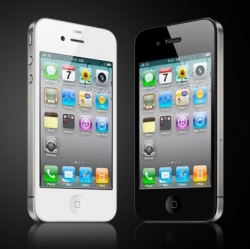
The plaintiffs allege that Apple’s apps were enabled to secretly record the movements and other actions of millions of iPad, iPhone and iPod touch users.
The case wraps together multiple lawsuits that have been filed against Apple.
The firm had argued that user agreements shielded it from liability.
But federal judge Lucy Koh said there was "some ambiguity" as to whether all the information that was collected had been permitted.
Claims under federal laws addressing computer fraud, wiretaps, and records disclosure were thrown out.
The judge also dismissed claims that Apple violated customers’ privacy rights.
In striking down the privacy claims, Judge Koh said the supposed invasion in this case was not an "egregious breach of social norms" and might even be deemed "routine commercial behaviour".
Other cases dismissed
Google as well as online advertising agencies, such as AdMarval, Admob, Flurry and Medialets were dismissed from the case completely.
These defendants were included as potential beneficiaries of the data that Apple was accused of collecting and leaking.
The lawsuit followed an April 2011 presentation from two computer programmers whose research showed that iPhone users’ movements were being monitored through their devices.
That provoked a firestorm in which regulators demanded changes, which Apple promised to make.
At the time Apple denied tracking iPhone locations and said that the company had never shared location data with third-parties unless explicity allowed by the user.
The firm, however, admitted that due to a bug location data was sometimes collected even if iPhone location services had been turned off.
The bug was fixed in a subsequent software update.
